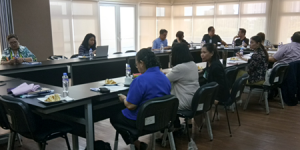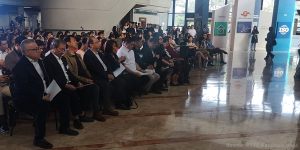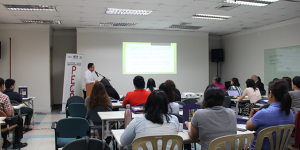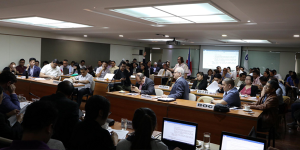Exporters and manufacturers are urged by the Strategic Trade Management Office (STMO) to conduct risk assessment of their products that may be of dual-use goods, otherwise known as strategic goods.
Dual-use goods are items, software, or technology which can be used for both civil and military end-use. These goods are listed in the National Strategic Goods List (NSGL). Other types of strategic goods are military goods and nationally controlled goods.
Strategic goods is defined by the Strategic Trade Management Act (STMA) as “products that for security reasons or due to international agreements, are considered to be of such military importance that their export is either prohibited altogether or subject to specific conditions”. These products are “generally suitable to be used for military purposes or for the production of WMD (Weapons of Mass Destruction)”.
To determine if the goods are of dual-use, exporters may refer to the NSGL, ask the product manufacturer or request classification from the STMO.
Exporters of dual-use goods are required to register and secure an exporter authorization or license from the STMO. Registration of exporters, as announced by the STMO in a forum, will be in the last quarter of 2019, while the exporter authorization is scheduled to be implemented in the third quarter of 2020.
The STMO, a bureau under the Department of Trade and Industry, is mandated by the STMA to regulate such goods by issuing “authorization/ licenses for the export, import, re-export, transit, transshipment, and provision of related services such as brokering, transporting, financing and providing technical assistance of strategic goods”.
Also covered by the STMA are the transit, transshipment, re-export, import, and reassignment of strategic goods. The schedule of regulating such activities is still to be announced by the STMO.
Non-compliance of the Act by the exporters will risk them seizure, delays, fines, imprisonment and inclusion in the denials list/ watchlist.
The STMA, otherwise known as Republic Act No. 10697, “An Act Preventing the Proliferation of Weapons of Mass Destruction by Managing the Trade in Strategic Goods, the Provision of Related Services, and for Other Purposes,” was enacted to enforce measures to establish domestic controls to prevent the proliferation of weapons of mass destruction (WMD) and their means of delivery from or within the Philippines. (ARB)

 Effective this year, exporters of products under the European Union (EU) Generalized System of Preference (GSP) – are required to be registered to the Registered Exporters System (REX).
Effective this year, exporters of products under the European Union (EU) Generalized System of Preference (GSP) – are required to be registered to the Registered Exporters System (REX). The Philippine Trade Training Center (PTTC) recently embraced its new role as the hub for Filipino innovators to produce “smarter” entrepreneurs through the soft launch of the Philippine Global MSME Academy. Moreover, a signing of a Memorandum of Agreement (MOA) between and among multi-stakeholder collaborators including the Department of Trade and Industry (DTI) and PTTC, Lead-More Development Inc., and other industry partners for the Integrated Center for Entrepreneurship (ICE) project was also done on 27 February 2019.
The Philippine Trade Training Center (PTTC) recently embraced its new role as the hub for Filipino innovators to produce “smarter” entrepreneurs through the soft launch of the Philippine Global MSME Academy. Moreover, a signing of a Memorandum of Agreement (MOA) between and among multi-stakeholder collaborators including the Department of Trade and Industry (DTI) and PTTC, Lead-More Development Inc., and other industry partners for the Integrated Center for Entrepreneurship (ICE) project was also done on 27 February 2019. Entities engaged in the transport of chemicals are reminded to double check and ensure compliance of the application requirements prior to submission to Commission on Elections (COMELEC) in securing the Certificate of Authority to Transport (CA-TT) chemicals. The completeness of documents submitted will lessen if not totally eliminate the chance of denial of application during the gun ban period.
Entities engaged in the transport of chemicals are reminded to double check and ensure compliance of the application requirements prior to submission to Commission on Elections (COMELEC) in securing the Certificate of Authority to Transport (CA-TT) chemicals. The completeness of documents submitted will lessen if not totally eliminate the chance of denial of application during the gun ban period. Department of Trade and Industry (DTI), Department of Transportation (DOTr), and Department of Finance (DOF) jointly presented the draft Joint Administrative Order (JAO) to concerned stakeholders. This aims to regulate the local charges imposed by international shipping lines and provide measures to address port congestion.
Department of Trade and Industry (DTI), Department of Transportation (DOTr), and Department of Finance (DOF) jointly presented the draft Joint Administrative Order (JAO) to concerned stakeholders. This aims to regulate the local charges imposed by international shipping lines and provide measures to address port congestion.


